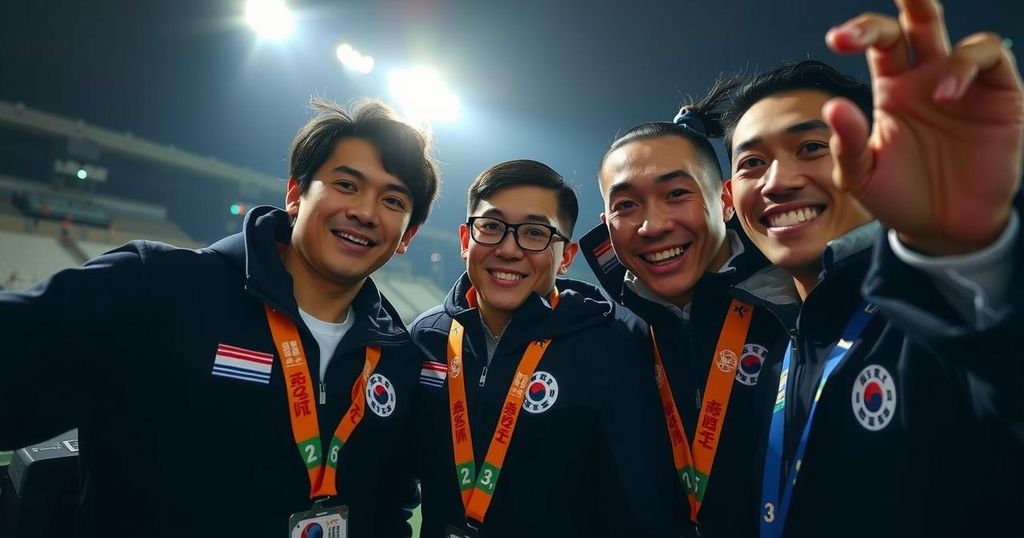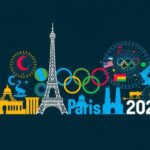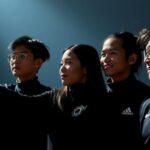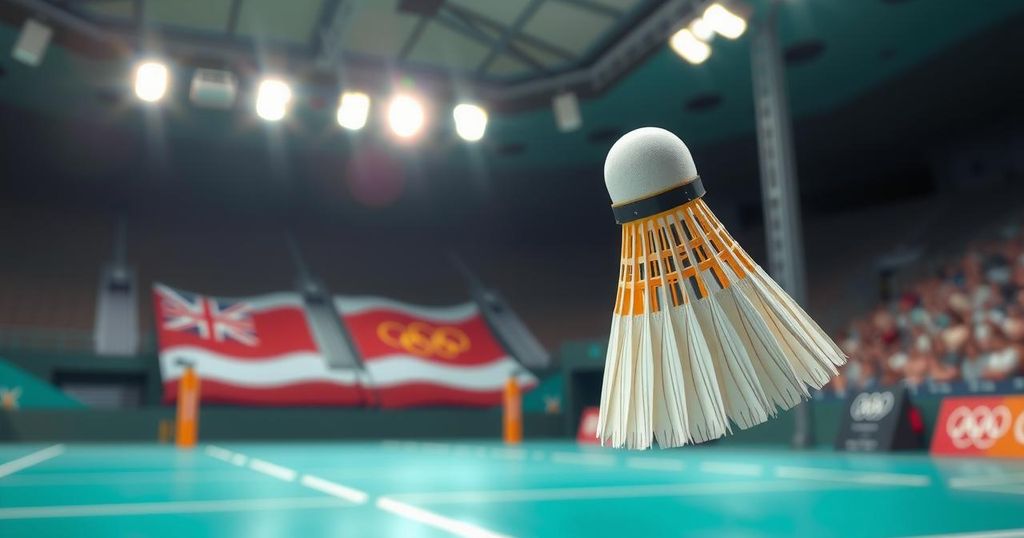North Korea’s Olympic Medallists Face Potential Punishment for Smiling with South Korean Counterparts
Recent developments surrounding North Korean table tennis athletes, Kim Kum-Yong and Ri Jong-Sik, have raised significant concerns regarding their potential repercussions following a prominent public display at the Paris 2024 Olympic Games. The duo not only achieved the notable accomplishment of securing a silver medal in the mixed doubles event, but they also participated in a widely publicized selfie with their South Korean counterparts, a gesture that has been interpreted as controversial within their home country.
During the medal ceremony at the Olympics, Kim Kum-Yong and Ri Jong-Sik posed for a photograph alongside South Korea’s bronze medalists, Lim Jong-Hoon and Shin Yubin, as well as China’s gold medalists, Wang Chuqin and Sun Yingsha. This moment, captured and shared by the official Paris 2024 social media accounts, resonated globally, epitomizing the Olympic spirit of unity and camaraderie among competing nations.
However, subsequent reports indicate that the reception of this event back in North Korea has been far from celebratory. According to Daily NK, a South Korean news outlet focused on North Korean affairs, the athletes have come under ideological scrutiny following the backlash from the ruling party. The report highlights that their smiling demeanor next to South Korean athletes — regarded as the nation’s adversary — has provoked disapproval among Pyongyang’s officials. The extensive international media coverage further complicates their situation, leading to an obligatory ideological review, a customary process implemented for athletes returning from competitions in non-communist countries.
An ideological review in North Korea consists of a three-phase evaluation intended to assess an individual’s exposure to perceived ideological contamination during their overseas experiences. This assessment is conducted by the Central Committee of the Workers’ Party of Korea, the Ministry of Physical Culture and Sports, along with input from the athletes themselves. A source familiar with the process described to Daily NK that the review commences immediately upon the athletes’ return, necessitating a ‘purging’ of any foreign influences from their ideologies. Such language reflects the stringent nature of the North Korean regime, which considers any engagement with non-socialist cultures as a potential threat to its values.
Throughout this process, athletes are expected to recognize their actions — such as collaborating with South Korean competitors — as missteps. Failure to comply with this procedure may result in both political and legal consequences.
In light of these alarming developments, Human Rights Watch has expressed grave concerns, urging the International Olympic Committee to take measures to safeguard athletes from potential backlash. The organization emphasized the IOC’s obligation, in accordance with the Olympic Charter, to protect athletes from any form of harassment and abuse. Furthermore, Human Rights Watch asserted that North Korean athletes should be able to participate in the Games without fear of retribution for embodying the Olympic values of respect and friendship.
In conclusion, the situation of Kim Kum-Yong and Ri Jong-Sik illuminates the precarious position of athletes from North Korea, where expressions of sportsmanship and collaboration are met with scrutiny and potential punishment, jeopardizing their careers and safety in a repressive political climate.








Post Comment